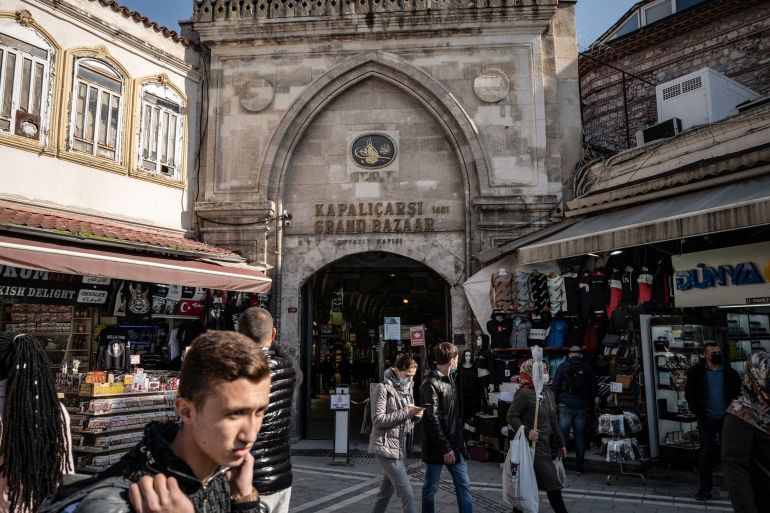Turkey signs $5bn swap deal with UAE, boosting foreign reserves
Turkey has depleted its foreign exchange reserves to defend the lira which lost more than 40 percent of its value last year.

(Bloomberg) –Turkey signed a $4.9 billion currency swap agreement with the United Arab Emirates, boosting dwindling foreign-exchange reserves depleted by the country’s financial turmoil.
The three-year deal reflects a warming of ties that began last year after a decade of frosty relations that rippled across the Middle East. Turkey has already signed swap deals with Qatar, South Korea and China to prop up its reserves, which shrank more than 10% in December as the central bank intervened in the foreign-exchange market to stem the lira’s decline.
Keep reading
list of 4 itemsWhy is Japan’s yen falling and why is it so weak against the US dollar?
ByteDance prefers TikTok shutdown in US over sale: Report
Stocks slide on Middle East tensions as hope crisis contained stems losses
Reserves totaled just under $110 billion on Jan. 7, according to official data, but fall significantly below zero when the central bank’s liabilities from swap deals with foreign counterparts or commercial lenders are stripped out. The lira, meanwhile, still lost about 40% of its value last month alone, when investors fled lira assets in search of protection against a worsening inflation outlook.
The run on the currency began after the central bank started a cycle of interest rate cuts in September at President Recep Tayyip Erdogan’s demand. Erdogan argues that lower borrowing costs will curb price pressures, contrary to what most central bankers think.
The size of Wednesday’s swap agreement in local currencies is 18 billion UAE dirhams or 64 billion Turkish liras, according to separate statements by both monetary authorities.
The deal followed a visit by the UAE’s de facto ruler, Sheikh Mohammed bin Zayed Al Nahyan, to Turkey in November. Relations between the countries had been strained over the role of Islamist groups in the tumult that followed the 2011 Arab Spring uprisings. The countries also supported opposing sides in Libya’s conflict, and have disagreed on other issues including gas exploration in the eastern Mediterranean.
(Adds thaw in relations with the UAE in second and last paragraphs)